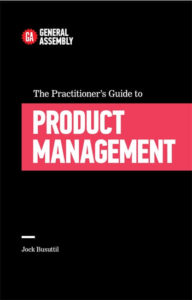
How do you find the balance between autonomy and focus for PMs you’re managing?
I’m asked questions about product management from time to time. Here’s one I’ve answered recently:
Hey Jock,
I have a question: How do you find the balance between autonomy and focus for PMs you’re managing?
As context, I have a PM in my team who I regularly find digging into areas of the business that are unrelated to the initiatives they’re responsible for. They also have a track record of being extremely slow to bring anything to market (often because they’re chasing those squirrels).
As much as I try to encourage a curious mindset in of all my team, our business has so much ground to cover we can’t really afford a lot of leisurely exploration.
I’ve tried multiple approaches to pointing out the need to stay focussed, and in those feedback conversations, I receive acknowledgement and agreement. Within a week however, they’re back into their old habits.
For me, this is creating friction between giving them autonomy, and having confidence in their ability to focus, and deliver results.
I’ve not been able to find the balance between picking the time to intervene with the appropriate guidance vs letting them run and figure it out for themselves.
Is this a question/issue that comes your way a lot?
B
Read on for my reply!
Hi B,
A bit ;-)
It’s tricky, because the behaviour is useful, but in moderation. What individuals like this seem to lack (in my experience of this, at least) is the ability to self-regulate and stop chasing down squirrels.
Try to work with the person to figure out what’s driving the behaviour.
Is it that they enjoy investigation / deep dives more than anything else? (are they in the wrong role?)
Is it a form of procrastination, where research becomes more attractive than delivery, despite them knowing full well that it’s not the priority? (try coaching some techniques like Pomodoro to reward progress on the urgent task with a little time on the attractive, non-urgent task)
Is it that they struggle to visualise the difference between urgency and importance? (a 2×2 urgent/important grid will help with this, as long as you can define together what is important right now based on current goals)
Is it that they’re stuck in the trap of wanting perfect information before acting? (a decision-making trap)
If it’s habitual, they may not realise when it starts to happen, so step one is to help them to recognise when they’re doing it and have a pre-determined action to take whenever they realise they’re doing it again. If for example I procrastinate by browsing Twitter, removing Twitter from my phone, or deliberately logging out from the app might remind me that I’m about to start procrastinating again as I’m doing it.
Setting review points with you, or mini-deadlines (intiially frequent, then space them out more when the desired behaviour is shown) can help procrastinators to reprioritise, but also runs the risk of descending into micro-management.
The goal is to get them into a state where they can recognise and self-police their behaviours.
You’ve given them some time to see if they can figure out how to keep themselves focused, and that’s not working, so it’s entirely reasonable adopt a more active coaching role until such a point that you’re both comfortable for you to be more hands-off again.
Hope all of that helps in some way!
Cheers,
Jock


Leave a Reply